We're moving to a new pagepublished at 00:14 BST 28 October 2023
For technical reasons, we're moving here to continue our live coverage. Join us there for more updates on the latest situation in Israel and Gaza.
Israel says its ground forces are "expanding operations" targeting Hamas in Gaza
Huge explosions were seen in the territory, with Israeli warplanes carrying out heavy strikes
Hamas says clashes have taken place in northern Gaza and reports say some Israeli troops and tanks have entered
But military officials are declining to say if this is the start of long-expected ground invasion
Communication networks have gone down in Gaza, meaning residents can't be contacted. Humanitarian agencies have warned the situation is dire
The UN General Assembly called for an immediate humanitarian truce, with 120 states voting for a resolution put forward by Jordan
Israel has been bombing Gaza since the 7 October Hamas attacks that killed 1,400 people and saw 229 people kidnapped as hostages
The Hamas-run health ministry in Gaza says 7,000 people have been killed since Israel's retaliatory bombing began
Edited by Dulcie Lee and James FitzGerald
For technical reasons, we're moving here to continue our live coverage. Join us there for more updates on the latest situation in Israel and Gaza.
The UK Foreign Secretary James Cleverley earlier posted on X, formerly known as Twitter, to acknowledge that Israel was expanding its military campaign against Hamas.
He posted:, external "The UK’s top priority remains the safety of British nationals in Gaza and the region.
"We support Israel’s right to self-defence, in line with IHL [international humanitarian law], and continue to push for the protection of Palestinian civilians."
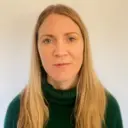 Alice Cuddy
Alice Cuddy
Reporting from Jerusalem
We’ve been in touch today with people across Gaza, but our calls and messages tonight are not getting through.
Most of the people we’ve been speaking to with recently are now in the south in areas like Khan Younis, having fled their homes elsewhere.
One family who live in central Gaza - and had been given evacuation orders by Israel - told us earlier today that they were too scared to flee for fear that they would be caught up in a strike on the journey.
“We’ll keep living here until we find a safe way to leave,” the father told us over the phone from his home, where he said the windows and doors had been destroyed in strikes on nearby buildings.
“We are in a very miserable condition. The kids especially, they’re afraid,” he said.
WhatsApp messages are now showing only one tick - signifying they haven't been read - and our calls are not connecting.
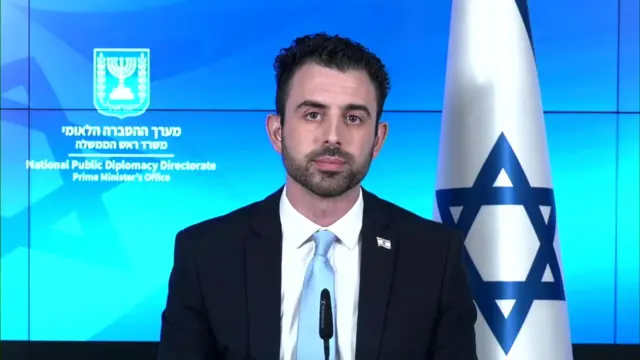
Earlier this evening, Israel said its ground forces were "expanding operations" in Gaza.
A short while ago, BBC News asked an Israeli government spokesman if this marked the start of a much-expected Israeli ground operation in the territory.
Eylon Levy simply answered: "Israel has expanded ground operation in the Gaza Strip, but beyond that, I'm not going to comment on operational matters."
The New York Times has spoken to an Israeli military spokesman who confirmed that some troops had entered the Gaza Strip but declined to say if what was happening was the start of a long-expected ground invasion.
"Our troops and tanks are inside the Gaza Strip. They’re shooting and they’re operating," Maj Nir Dinar told the newspaper, adding: “But our troops and tanks were inside Gaza yesterday as well."
The military wing of Hamas - a proscribed terror organisation in the UK, US and elsewhere - earlier said its fighters had been clashing with Israeli forces in two parts of northern Gaza.
Israel's military has launched what they called "targeted raids" into Gaza for the past two nights.
 Lucy Williamson
Lucy Williamson
Reporting from Ashkelon
The bombardment of Gaza has grown heavier tonight, more constant than in recent days.
We’ve heard explosions throughout the evening, some of them louder than usual; the last explosions less than half an hour ago.
Planes are passing back and forth over Ashkelon almost constantly – much more often than in previous days.
Sirens have also sounded several times this evening, warning of incoming rockets fired towards Ashkelon.
At the hotel dining hall tonight, dozens of guests – many evacuated from homes nearby – abandoned half-finished plates of food and rushed for the safe room. This city - around 10km (6 miles) from Gaza - is jumpy tonight.
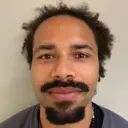 Brandon Drenon
Brandon Drenon
Reporting from Washington DC
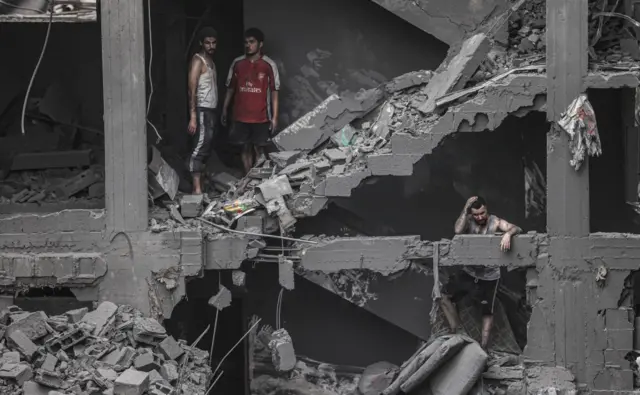 Image source, Getty Images
Image source, Getty ImagesPeople in a damaged building in the Gaza Strip earlier today
For the past 20 days, the lives of Palestinians living outside Gaza and the West Bank have been drastically warped by non-stop feelings of worry and panic over their loved ones still in Gaza.
Sporadic, limited exchanges on WhatsApp have brought occasional moments of respite.
However, any extended gap in communication has been met with paralysing anxiety - marked by questions like: "Are they dead, are they alive, was their house bombed too?"
Now, with internet and telecommunications lines cut off in Gaza, panic for the relatives of the roughly 2.3 million people living there is at an all-time high.
In a WhatsApp group with my wife - whose mother was born in Gaza - relatives from around the world have been frantically messaging over the last hour.
"Oh my god!!", one wrote.
"It seems a ground offensive may start," wrote another.
Everyone seems to be holding their breath - waiting, hoping, but not knowing if they'll ever hear from their loved ones in Gaza again.
 Nada Tawfik
Nada Tawfik
Reporting from UN headquarters in New York
The issue of whether or not to pass a resolution calling for an "immediate humanitarian truce" was one that divided Western nations at the United Nations earlier.
The US, Israel’s staunchest ally, voted against it. Canada, the UK and several European nations abstained – wanting a direct condemnation of Hamas in the text.
But other European countries supported it, such as Spain, Portugal, France and Belgium - whose ambassador after the vote said that even war had rules.
As we reported below, Israel’s ambassador attacked the UN’s legitimacy - and claimed in the chamber after the vote that there was no humanitarian crisis in Gaza.
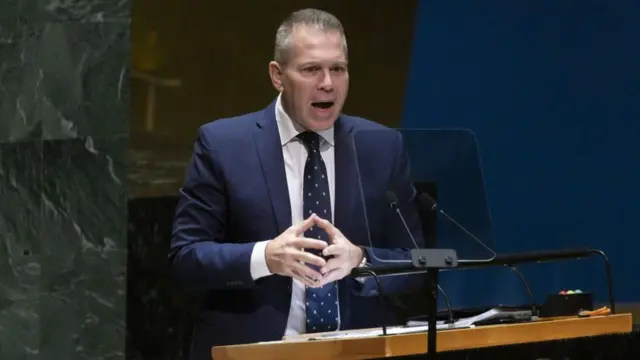 Image source, EPA
Image source, EPAA few hours ago, the UN General Assembly voted in favour of calling for an "immediate humanitarian truce" in Gaza - a symbolic rather than legally-binding move.
Speaking afterwards, Israel's ambassador to the UN, Gilad Erdan, made a strongly-worded speech, saying the UN "no longer holds one ounce of legitimacy or relevance" and telling the assembly "shame on you".
"Israel has the right to defend itself. The only way to ensure that the atrocities will never be repeated is the eradication of Hamas's terror capabilities. This resolution does not even name Hamas as if this war started on its own," he said.
Then he raised his voice and asked: "Why are you defending murderers, what is going on here? Why are you not holding Hamas accountable?"
"Israel will continue to defend itself, Israel will do what must be done to eradicate Hamas's capabilities and bring the hostages home. And we will bring them home," he concluded.
 Jeremy Bowen
Jeremy Bowen
International editor, reporting from Jerusalem
I have been hearing over the course of the day that negotiations between the two sides had been taking place and were making progress - that they had been discussing the possible release of hostages, and perhaps a humanitarian pause in the fighting over the next few days.
The talks had stalled in the afternoon over what seemed to be some minor details, and since the announcement of Israel’s new offensive, it appears they have stopped.
With Israeli tanks and troops set to enter Gaza, there doesn’t appear to be much hope they will pick up again while this offensive is going on.

 Paul Adams
Paul Adams
Diplomatic correspondent in Jerusalem
Israel’s military has clearly stepped up its Gaza operations tonight, with seemingly devastating consequences.
But it’s hard to know if this marks the start of the full ground invasion everyone has been expecting.
I understand that Western diplomats are urging Israel not to move quickly to an all-out invasion but rather to escalate slowly, to reduce the chances of other regional players – Hezbollah in Lebanon, Shia militias in Iraq and Syria and the Houthis in Yemen – getting more heavily involved.
The fear of a wider regional conflict is real. Warning signs are flashing red across the Middle East.
Israel and Hezbollah are engaged in daily clashes. Israel and the US have both hit targets in Syria in recent days. And projectiles, thought to have been fired from Yemen, hit two Egyptian Red Sea towns on Friday. They were almost certainly aimed at Israel.
In a post on social media tonight, Hizan al-Assad, a member of the Houthi political bureau in Yemen wrote a single word, “Eilat,” a reference to Israel’s only Red Sea port.
Whether Israel is in a mood to heed the advice of its allies is unclear.
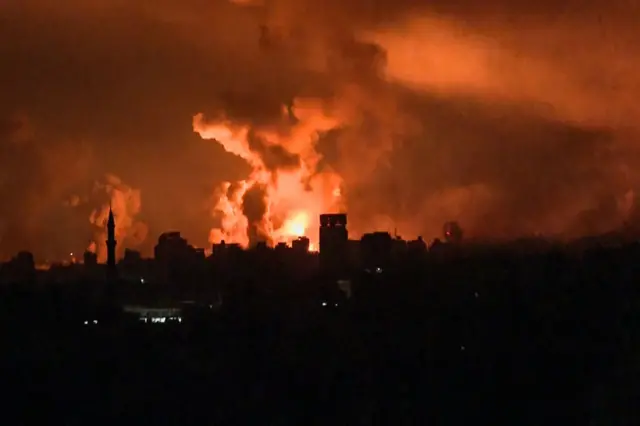 Image source, Getty Images
Image source, Getty ImagesThings have intensified in the last few hours. Here's the latest picture:
The military wing of Hamas, the Al Qassam Brigades, has said it is confronting an Israeli military ground incursion in the northern part of the Gaza Strip.
The Hamas statement says “violent engagements” are taking place on the ground near Beit Hanoun in northern Gaza, and Bureij in the centre. It did not give further details about what form the clashes were taking.
The BBC cannot verify these Hamas claims, and while Israel said earlier tonight that it was intensifying its attacks on Gaza, it has not released any details of what the "expansion" of its ground operation involves.
A senior administration official has given a bit more detail on how the White House is reacting.
Speaking with CBS, the BBC's news partner in the US, the official said President Joe Biden was briefed by his national security team this morning.
"He will be updated, of course, throughout the weekend on what’s going on, on the ground," they said.
"We’re obviously following this very, very closely and we'll stay in touch, of course, with our Israeli counterparts.”
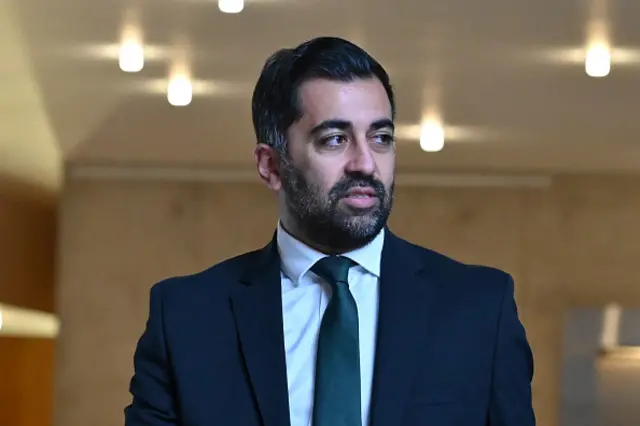 Image source, Getty Images
Image source, Getty ImagesScotland's First Minister Humza Yousaf says he cannot reach his family members in Gaza.
In a post on X, external, he wrote: "Gaza is under intense bombing. Telecommunications have been cut. We can't get through to our family who have been trapped in this war zone for almost 3 weeks. We can only pray they survive the night."
Yousaf added: "How many more children have to die before the world says enough?"
Yousaf's parents-in-law travelled to Gaza to see a sick relative, and were still there when Hamas attacked Israel on 7 October. They have been trapped for three weeks after Israel started bombarding the territory. Yousaf said earlier this week that they were running out of water.
 Laura Gozzi
Laura Gozzi
Live reporter
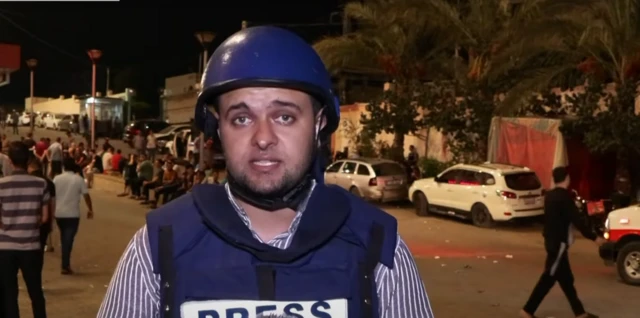 Image source, Al Jazeera
Image source, Al JazeeraAs we've reported, communications in the Gaza Strip collapsed earlier this evening.
But an Al Jazeera reporter in the southern Gazan city of Khan Younis, Tareq Abu Azzoum, has been able to deliver sporadic segments to his TV station via digital satellite.
Speaking to camera, he said that he couldn't tell whether his producers or the studio could hear him: "We are talking now without having any kind of contact with the newsdesk... We might even lose this contact at any moment."
He added:
Quote Message"If you can hear us, send out that message to the world - that we are isolated in Gaza. We don't have any phone signal, we don't have any internet connection, we had difficulties even contacting our relatives in different parts of the territory.
Quote MessageWhat the Gaza Strip is witnessing right now is massive deterioration. We are talking about more than 2.3 million Palestinians now isolated from the world. They are unable to communicate with their relatives or with each other."
A little while ago we reported on footage from AFP showing several more explosions in Gaza.
Here's what we saw:
Live feed shows several more explosions in Gaza
More on that resolution just adopted by the UN General Assembly.
It calls not only for a humanitarian truce - and for aid to be allowed into Gaza - but also the “immediate and unconditional release” of all civilians being held as captives.
And it demands their safety, wellbeing and humane treatment in compliance with international law.
The resolution makes no specific mention of Hamas's attacks of 7 October, which killed 1,400 people.
 Nada Tawfik
Nada Tawfik
Reporting from UN headquarters in New York
The UN General Assembly has adopted – by an overwhelming majority – a resolution calling for an immediate humanitarian truce in Gaza.
The resolution – put forward by Jordan on behalf of the Arab group – also condemns all acts of violence against Palestinian and Israeli civilians, including all "terror and indiscriminate attacks".
It calls for unhindered aid and protection of civilians.
There were 120 votes in favour, 14 against and 45 abstentions.
Resolutions by the General Assembly are not legally binding, but they carry moral weight due to the universality of its membership.
The Palestine Red Crescent Society (PRCS) has reiterated to BBC News that communication with Gaza has been cut off.
Speaking from Ramallah - in the separate West Bank - spokeswoman Nebal Farsakh says: "We are extremely worried about our colleagues who are working on the ground amid this continuous bombardment."
Farsak explains that emergency workers will be defaulting to a "traditional way" of working: hearing the sound of explosions and attending the scene to treat those assumed to be wounded.
"We will be running out of fuel in the coming hours," she says. "We will be unable to provide emergency medical services in Gaza and do not have fuel to run the ambulances."
She warns that people connected to life support or oxygen machines will "lose their lives" as the equipment is cut due to the lack of electricity.